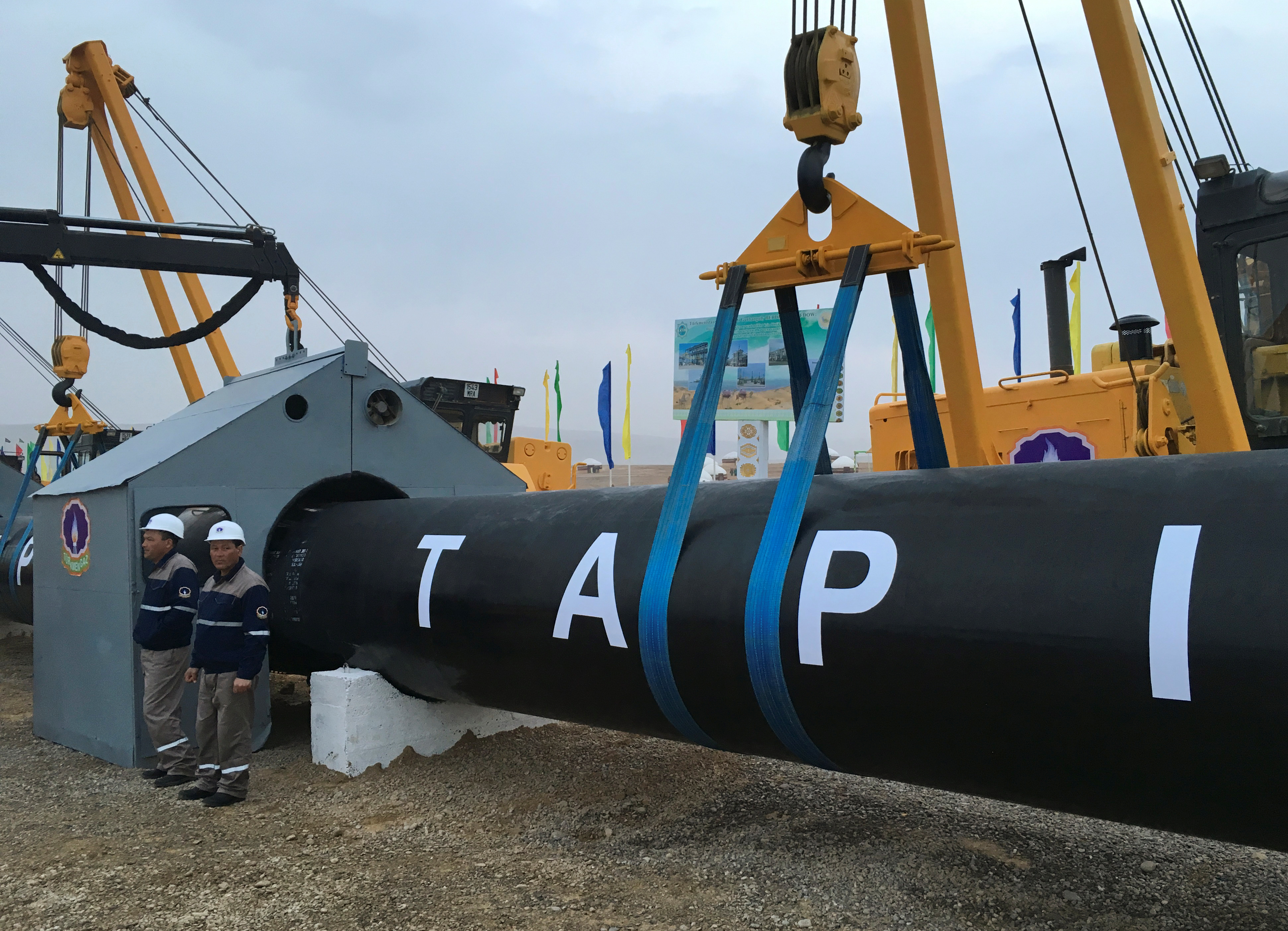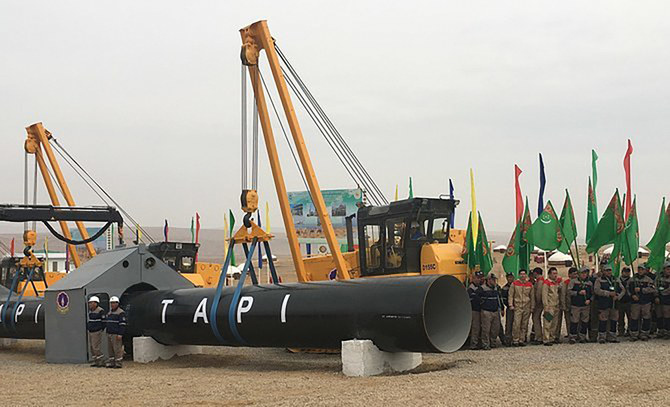Source: PT Profit
In a significant development, Pakistan’s federal cabinet has granted approval for the Turkmenistan, Afghanistan, Pakistan, and India (TAPI) Gas Pipeline Project’s Joint Implementation Plan (JIP).
The decision aims to expedite the completion of the project’s feasibility study and accelerate progress towards the construction phase. The approval was granted after a summary was circulated by the Petroleum Division, seeking endorsement for the plan as per the Rules of Business, 1973, according to sources familiar with the matter.
The approved Joint Implementation Plan (JIP) is a legally non-binding document to be executed between the Ministry of Energy of Pakistan and the State Concern “Turkmengas,” a company incorporated under the laws of Turkmenistan. The Ministry of Law and Justice has already cleared the JIP, paving the way for its signing during the Turkmenistan delegation’s visit to Pakistan.
The TAPI Gas Pipeline Project is a crucial initiative undertaken by the Petroleum Division, based on Government-to-Government Agreements, including the Inter-Governmental Agreement and Gas Pipeline Framework Agreement. These agreements have been duly approved by the federal cabinet and signed jointly by the governments of Turkmenistan, Afghanistan, Pakistan, and India. Under these umbrella agreements, nominated entities from the four countries have been actively involved in project implementation, entering into various project-related agreements such as the TAPI Gas Sales and Purchase Agreement, TAPI Shareholders Agreement, TAPI Investment Agreement, and Heads of Terms of Host Government Agreement.
The TAPI Gas Pipeline Project aims to bring natural gas from Turkmenistan’s Galkynysh gas field to Pakistan through Afghanistan. The pipeline’s capacity is expected to transport up to 33 billion cubic meters (bcm) of natural gas per year for a period of 30 years. Pakistan’s off-take will be approximately 1.3 billion cubic feet per day (BCFD) through a pipeline with a diameter of 56 inches. The proposed route covers 1,849 kilometers, passing through Herat, Kandahar, Chaman, Zhob, Dera Ghazi Khan, Multan, and Fazilika.
The approval of the TAPI Joint Implementation Plan marks a significant milestone in expediting the implementation of the gas pipeline project. It demonstrates the commitment of all participating countries to regional energy cooperation and lays the foundation for enhanced energy security and economic growth in the region.
With the necessary approvals in place, the project stakeholders will now focus on finalizing key project agreements, undertaking land acquisition processes, and formulating project implementation strategies to ensure the timely completion of the TAPI Gas Pipeline Project.
Key Points of TAPI JIP
The Turkmenistan, Afghanistan, Pakistan, and India (TAPI) Joint Implementation Plan (JIP) is a crucial document that outlines the key points and strategies for the successful implementation of the TAPI Gas Pipeline Project. Here are the key points of the TAPI JIP:
Project Objectives: The JIP reiterates the project’s objectives, which include the transportation of natural gas from Turkmenistan’s Galkynysh gas field to energy-deficient countries in South Asia, namely Afghanistan, Pakistan, and India. The project aims to enhance regional energy security, promote economic growth, and foster regional cooperation.
Senior Coordination Committee (SCC): The JIP establishes a Senior Coordination Committee (SCC) comprising representatives from Turkmenistan, Afghanistan, Pakistan, and India. The SCC will oversee and expedite project activities, ensuring effective coordination and cooperation among the participating countries. The SCC will play a vital role in the implementation process, including finalizing outstanding project agreements and resolving any issues that may arise.
Responsibilities and Tasks: The JIP clearly defines the responsibilities and tasks of the participating countries and relevant entities. It emphasizes the need for active engagement and collaboration to ensure the smooth execution of the project. Key tasks include finalizing project agreements, undertaking land acquisition processes, developing the TAPI security concept, supporting the TAPI Herat offtake strategy, and formulating project implementation strategies.
Legal Framework: The JIP serves as a legally non-binding document to be executed between the Ministry of Energy of Pakistan and the State Concern “Turkmengas” of Turkmenistan. It outlines the framework for cooperation and establishes the basis for future binding agreements. The JIP has already been cleared by the Ministry of Law and Justice in Pakistan, ensuring its legal validity.
Focal Person and Leadership: The JIP designates a focal person from each participating country to facilitate effective communication and coordination. In the case of Pakistan, Dr. Jehanzeb Khan, the Special Assistant to the Prime Minister, has been nominated as the focal person. The focal persons will play a crucial role in leading and guiding the project’s implementation efforts from their respective countries.
Timeline and Milestones: The JIP emphasizes the importance of adhering to timelines and achieving project milestones. It highlights the urgency of completing the feasibility study and progressing towards the construction phase in a timely manner. Clear timelines will be established for various project activities, enabling effective monitoring and progress tracking.
Government Support: The JIP emphasizes the commitment of the participating countries’ governments to support and facilitate the project. It highlights the role of the federal cabinet in approving and endorsing the Joint Implementation Plan, indicating strong political will and determination to see the project through.
The TAPI Joint Implementation Plan serves as a roadmap for the successful implementation of the TAPI Gas Pipeline Project. It provides a comprehensive framework for coordination, cooperation, and timely completion of key activities. By defining responsibilities, establishing a senior coordination committee, and emphasizing the legal and government support required, the JIP sets the stage for enhanced energy security and regional prosperity.




